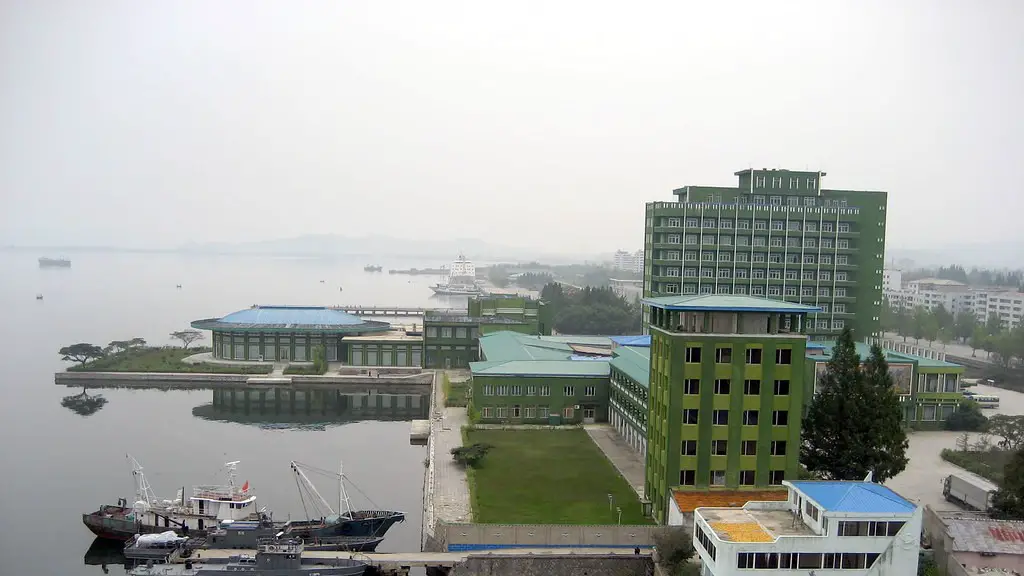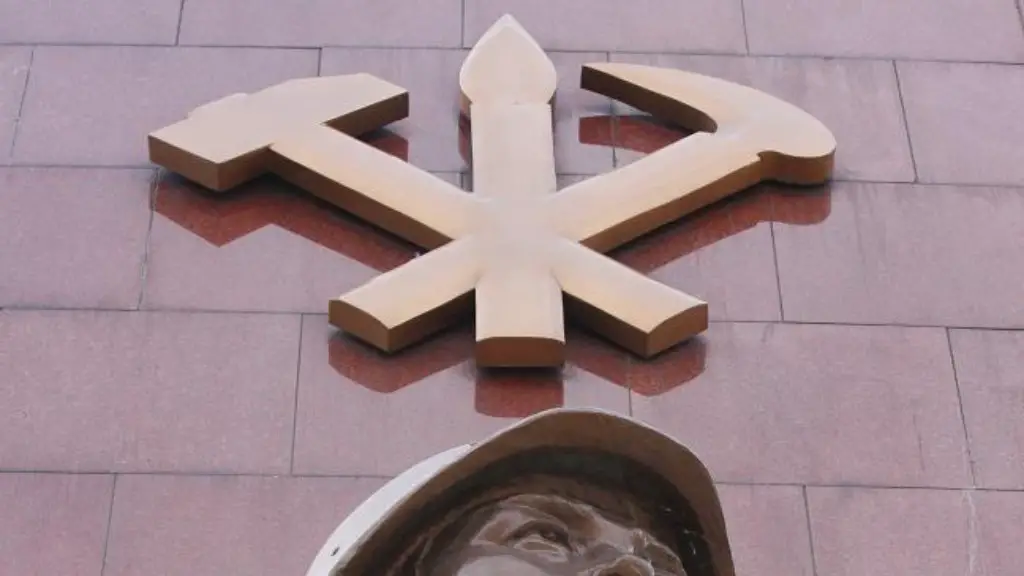Background
North Korea is a secretive, hermit nation led by a hereditary dynasty with a long-standing state ideology of autarky. The nation’s leader, Kim Jong Un, is the third-generation member of the Kim family to preside over the country. For centuries, North Korea has been under the control of the Kim family, with each successive ruler attempting to centralize power and remove any trace of outside influence that may adversely affect the nation’s iron-fisted rule. Kim Jong Un as the current leader, is no exception to this rule. He is known for his bellicose rhetoric and provocative acts, ranging from nuclear tests to cyber-attacks and frequent clashes with his country’s southern neighbor, South Korea.
Kim Jong Un
Kim Jong Un is the Chairman of the State Affairs Commission and Supreme Leader of North Korea. He is the third son of Kim Jong Il, the country’s second leader, and the grandson of Kim Il Sung, its founder. Kim Jong Un took power after his father’s death in 2011, making him the youngest leader in the world at the time. Under his rule North Korea has continued to develop its nuclear weapons program and harass its South Korean neighbor, leading to increasing tensions between the two nations.
Aside from his aggressive international image, Kim Jong Un is also known for his elaborate lifestyle and for making sporadic visits to other countries such as Singapore and China. Early in his reign, he launched a three-year plan to modernize North Korean society and the economy, with an emphasis on technological advancement.
Leadership Style
Kim Jong Un is a highly authoritarian leader and like other members of the Kim dynasty, he has made it clear that he will not tolerate any opposition to his rule. Through a combination of fear and loyalty, he has achieved a tight grip on power, but has also been willing to resort to brutal punishments and executions to keep his enemies in check.
The image that Kim Jong Un has crafted for himself is that of a strong, decisive leader who is able to put the well-being of the nation above all else. He uses this image to manipulate the public opinion in an effort to bolster his legitimacy and attempt to portray himself as an irreplaceable figure at the head of the nation. This is often accompanied by an inflated sense of North Korea’s importance on the international stage.
Does He Have Any Followers?
Kim Jong Un’s leadership is supported by a group of loyalist bureaucrats who are dedicated to protecting and promoting his policies. North Koreans are largely unaware of the limitations of the country’s resources and their leader’s real character, due to the information and media restrictions imposed by the state. His loyalists also have a vested interest in maintaining his rule, as they benefit from the patronage and privileges that come with being associated with the Kim family.
International Reactions to Kim Jong Un
Internationally, Kim Jong Un has been met with a mix of disapproval and wariness in regards to his aggressive foreign policy and refusal to compromise on denuclearization. He is seen as an unpredictable, dangerous leader who is willing to act in a reckless manner to achieve his goals. The United States in particular has been vocal in its opposition to the North Korean regime. Through economic sanctions and diplomatic pressure, America has attempted to force North Korea to abandon its nuclear program, so far with limited success.
International Mentors
Kim Jong Un has received guidance from several international leaders who are willing to provide diplomatic, political, or economic assistance if it helps them advance their own interests.
China and Russia have provided military, economic and diplomatic support to the North Korean regime, while countries such as South Korea and Japan have made attempts to broker diplomatic talks between North Korea and the United States.
Domestic Economic Developments
While Kim Jong Un has attempted to modernize the North Korean economy and make it more competitive internationally, the reality is that North Korea’s economy remains largely dependent on foreign aid and illegal activities. Many of the initiatives launched by Kim Jong Un are largely failing to produce meaningful results and the country remains one of the poorest in the world.
Social Reforms and Human Rights
Kim Jong Un has implemented a number of social reforms and made efforts to improve North Korea’s human rights record. Under his rule, the country has adopted a more relaxed social and cultural atmosphere, where citizens can dress and act more freely. That being said, North Korea remains an authoritarian state where political dissidents and religious minorities are routinely targeted and punished.
Crackdowns on Corruption
In an effort to deal with the rampant corruption in his government, Kim Jong Un has launched a series of crackdowns on officials accused of embezzlement and bribery. He has also sought to consolidate his power by removing any potential opponents to his rule and replacing them with loyalists.
Nuclear Program
Kim Jong Un has also sought to develop North Korea’s nuclear weapons program, which has caused tensions with neighboring countries and the United States. With the help of countries such as China and Russia, North Korea has made significant progress in the development of its nuclear arsenal, with multiple tests being conducted in the past few years.Despite international criticism, North Korea remains insistent on pursuing its nuclear ambitions and Kim Jong Un has stated that nuclear weapons are a necessary deterrent against potential foreign aggression.


